Does
your thirst feel never-ending? Do you feel unsatisfied even after
having multiple glasses of water? If you answered yes to these
questions, there is a high chance that you are dehydrated. When your
body loses more water than it takes in, it may lead to dehydration (1).
). Although dehydration is quite common among all age groups, it may
have more hazardous consequences for children and older adults. However,
your worries can take a back seat because some of the best home
remedies to combat dehydration are listed here. Read on to find more
about the causes of dehydration, its symptoms, side effects, and
remedies to treat it.
Table Of Contents
- What Is Dehydration?
- Causes Of Dehydration
- Signs And Symptoms Of Dehydration
- Side Effects Of Dehydration
- How To Treat Dehydration Naturally
- Preventive Tips
What Is Dehydration?
Dehydration occurs when your body is unable to retain fluids and electrolytes. When there is a reduction in the water content of the body, the salt-sugar balance goes haywire, which affects the functioning of the body. There are many factors that cause dehydration. Let’s take a look at them below.Causes Of Dehydration
Dehydration may be the result of a minor underlying issue, such as a rigorous workout session or decreased water intake. Some other causes of dehydration are as follows:- Diarrhea Or Vomiting: Both diarrhea and vomiting lead to excessive loss of water from your body, and this can cause dehydration.
- Fever: Running a high fever increases your chance of becoming dehydrated.
- Frequent Urination: Frequent urination following a disease like diabetes or intake of certain diuretic medications also has the potential to result in dehydration.
- Sweating In Excess: If your body loses a lot of fluids after an intense workout, you are at a higher risk of becoming dehydrated.
- Age: Older people and infants are at higher risk of becoming dehydrated.
- Chronic Illnesses: Individuals suffering from chronic diseases, such as diabetes and kidney diseases, are also at higher risk of becoming dehydrated.
- Weather: Extremely hot or cold weather has the potential to cause excessive water loss in your body, leading to dehydration.
Signs And Symptoms Of Dehydration
In Adults
Dehydration can have mild to severe impact on the affected individuals. Some of the most common signs and symptoms of dehydration in adults include:- A dry and sticky tongue
- Excessive thirst
- Less frequent urination
- Dizziness
- Urine becomes dark
- Fatigue
In Children
The signs and symptoms of dehydration in children may vary from that of adults. The common symptoms of dehydration in children and infants are as follows:- A dry mouth (2)
- Eyes and cheeks appear sunken
- Increased sleep and lack of energy
- Increased tiredness
- Dry diapers for more than 3 hours
- Absence of tears while crying
Side Effects Of Dehydration
Dehydration may also cause some unusual side effects like- Bad breath
- Frequent chills
- Cravings for sweets
- Cramps in the muscles
- Headaches
- Dry skin
Best Home Remedies For Dehydration
1. Bananas
You Will Need
1-2 bananasWhat You Have To Do
Have a banana before indulging in any intensive physical activity.How Often You Should Do This
Do this twice daily.How This Works
Dehydration causes a deficiency of potassium in your body. Bananas have high potassium content and can help replenish its levels and combat dehydration (3).Caution
Bananas can be included in your infant’s diet only if he/she is more than 6 months old.2. Buttermilk
You Will Need
- 1 cup of buttermilk
- 1/2 teaspoon of dry ginger
What You Have To Do
- Mix dry ginger in a cup of buttermilk.
- Consume this refreshing drink.
How Often You Should Do This
You must drink buttermilk at least 3 to 4 times a day to combat dehydration.How This Works
Buttermilk is a natural probiotic. It is rich in minerals such as potassium and magnesium that are often depleted when you sweat excessively and become dehydrated (4).Note: Buttermilk is not only safe but also beneficial for your infant’s overall health.
3. Barley Water
You Will Need
- 1 cup of barley
- 3 to 4 cups of water
- 1/2 lemon
- Honey
What You Have To Do
- Add a cup of barley to water and bring to a boil in a saucepan.
- Simmer for 40 to 50 minutes.
- Let the barley infusion cool.
- Strain the barley water and add lemon and honey for flavor.
- Drink this infusion at regular intervals throughout the day.
How Often You Should Do This
Do this 3 to 4 times a day.How This Works
Barley water is an extremely healthy drink. It is loaded with many antioxidants, vitamins, and minerals that can help to restore the fluids lost by dehydration and keep you hydrated (5), (6).Caution
Wait for your little one to turn at least 6 months before introducing barley to his/her diet.4. Soups
Soups are good sources of nutrients that can help in dealing with dehydration and its symptoms. The high content of minerals like potassium in soups makes them an ideal option to restore the lost nutrients in your body. For best results, consume soups before a rigorous workout session to help you stay hydrated. They can be used to treat dehydration in babies once they turn 6 months old.5. Coconut Water
You Will Need
1 glass of young coconut waterWhat You Have To Do
Drink young coconut water throughout the day.How Often You Should Do This
You must drink coconut water 4 to 5 times daily for best results.How This Works
Coconut water is high in sodium and potassium, the levels of which are often depleted when you are dehydrated. This makes it one of the best options to treat dehydration naturally (7), (8).Caution
Give coconut water to your baby only once he/she completes 6 months.6. Essential Oils
a. Lemon Essential Oil
You Will Need
- 1 to 2 drops of lemon essential oil
- 1 glass of water
What You Have To Do
- Add a few drops of lemon essential oil to a glass of water.
- Drink this solution.
How Often You Should Do This
Drink the lemon-flavored drink once daily.How This Works
Lemon essential oil has antioxidant and cleansing properties and is great to keep you hydrated and healthy (9).b. Wild Orange Essential Oil
You Will Need
- 1 to 2 drops of wild orange essential oil
- 1 glass of water
What You Have To Do
- Add a couple of drops of wild orange essential oil to a glass of water and mix well.
- Consume this flavored water throughout the day.
How Often You Should Do This
Drink this water at least once daily.How This Works
Wild orange flavored water is a refreshing antioxidant drink that promotes overall health and enhances the functioning of your immune system. It is a flavorful and healthy way to treat dehydration as compared to unhealthy drinks with high sugar content (10).c. Peppermint Essential Oil
You Will Need
- 2 drops of peppermint essential oil
- 1 glass of water
What You Have To Do
Add a few drops of peppermint essential oil to a glass of water and consume daily.How Often You Should Do This
Do this 1 to 2 times daily.How This Works
Peppermint oil contains potassium and magnesium – the reserves of which are low in dehydrated individuals. This peppermint oil infused water can help replenish the potassium and magnesium levels in your body and treat dehydration (11).Caution
Infants and children should not be given essential oils internally until they are at least 6-10 years old.7. Homemade ORS
You Will Need
- 1/2 teaspoon of salt
- 6 teaspoons of sugar/brown sugar
- 4 cups of water
What You Have To Do
- Add the salt and sugar to water and mix well until they are completely dissolved.
- Drink this solution until the symptoms abate.
How Often You Should Do This
Do this multiple times until you have consumed at least 3 liters of this solution in a day.How This Works
ORS stands for Oral Rehydration Solution. The name itself gives away the use of this remedy, i.e., to treat dehydration. Consuming ORS is one of the best ways to replace the lost fluids in your body. This is because the glucose content of sugar used in ORS helps in increased uptake of sodium and water that are lost due to dehydration (12), (13).Note: ORS is one of the safest options to treat dehydration in infants. However, it is best to consult a doctor before doing so, especially if your infant is less than 6 months old.
8. Pickle Juice
You Will Need
1/3 cup of pickle juiceWhat You Have To Do
Drink pickle juice before or after an intense workout.How Often You Should Do This
Do this once a day.How This Works
Your body tends to lose a lot of potassium and sodium when you sweat excessively, and this leads to dehydration. A study revealed that men who were dehydrated found immediate relief from muscle cramps after consuming pickle juice. Pickle juice is high in sodium and is also known to have some amount of potassium in it. Thus, it is one of the best remedies to treat dehydration as it restores the electrolyte balance in your body (14).Caution
Do not give pickle juice to your little one.9. Cranberry Juice
You Will Need
2 cups of cranberry juiceWhat You Have To Do
Drink at least 2 glasses of unsweetened cranberry juice daily.How Often You Should Do This
Drink this juice twice daily.How This Works
Cranberry juice has high water content and is one of the best ways to treat dehydration naturally. It also contains essential sugars and salts that are often lost when you are dehydrated (15).10. Apple Juice
You Will Need
- 1 apple
- 1/2 glass of water
What You Have To Do
- Blend an apple with half a glass of water.
- Drink this juice.
How Often You Should Do This
You can drink this juice twice daily.How This Works
Apples are a rich source of magnesium. They also contain trace amounts of potassium and can, therefore, help in treating dehydration by restoring the lost minerals and electrolytes in your body. According to a study conducted in 2016, diluted apple juice is a more effective option as compared to electrolyte drinks to treat dehydration in children (16), (17).Caution
You need to wait for your babies to complete at least 6 months before introducing fruit juices and solid foods in their diet.11. Orange Juice
You Will Need
1 to 2 glasses of unsweetened orange juiceWhat You Have To Do
Drink a glass of unsweetened orange juice before or after a strenuous workout.How Often You Should Do This
You must drink this juice once or twice a day.How This Works
Oranges are rich in a lot of vitamins and minerals. They also have electrolytes such as potassium and little amounts of magnesium present in them. Oranges, therefore, have the potential to keep dehydration at bay by maintaining the electrolyte balance in your body (18).Caution
Children below 6 years of age should consume just half a cup of orange juice in a day.12. Lemon Water
You Will Need
- 1/2 lemon
- 1 glass of water
- Honey (optional)
What You Have To Do
- Squeeze half a lemon into a glass of water.
- Add honey for flavor and consume this drink daily.
How Often You Should Do This
Drink lemon water two to three times a day.How This Works
Lemon water not only refreshes you but also helps you overcome dehydration by restoring the levels of potassium, sodium, and magnesium in your body (19).Caution
Wait till your baby is 6 months old before introducing lemon to his/her diet.13. Salt
When you are dehydrated, your body ends up losing many significant minerals and electrolytes such as magnesium, potassium, and sodium. In such a situation, it is recommended to increase the intake of these to balance their amount in your body. Your body has the natural ability to maintain the balance of sodium and water. When you are dehydrated, this balance is disturbed. Thus, increasing the amount of salt in your diet via sports drinks and foods rich in sodium can help your body regain the sodium-water balance. This, in turn, can help combat dehydration (20), (21).14. Yogurt
You Will Need
- 1 cup of yogurt
- A pinch of salt
What You Have To Do
- Add a pinch of salt to a cup of yogurt and mix well.
- Consume this daily.
How Often You Should Do This
Do this 1 to 2 times daily.How This Works
Yogurt is a rich source of electrolytes and can hence combat dehydration by restoring the lost electrolytes in your body (22).Caution
You can include yogurt in your infant’s diet if he/she is older than 6 months.15. Epsom Salt Bath
You Will Need
- 1 cup of Epsom salt
- 1 bucket of water
What You Have To Do
- Add a cup of Epsom salt to your bath water.
- Soak and relax in the bath for 15 to 20 minutes.
How Often You Should Do This
You can do this 2 to 3 times a week.How This Works
The magnesium in Epsom salt can help to combat dehydration and its symptoms when absorbed by your body (23).Caution
Although an Epsom salt bath is relatively safe for children, it may cause issues if the bath water is swallowed. Infants below the age of 1 should be kept away from this treatment.Although these remedies can help you in your fight against dehydration, following a few preventive tips and making a couple of lifestyle changes will prove beneficial in treating this condition.
Preventive Tips For Dehydration
- Include plenty of water and hydrating juices like watermelon and strawberry in your diet, especially before and after a rigorous activity.
- Use an electrolyte sports drink if you are planning to workout or exercise for more than an hour.
- Avoid alcohol consumption as it increases dehydration.
- Quit smoking as it can cause dehydration in the long run.
- Wear lightweight and light-colored clothes if you are working out or exercising outdoors.
- Follow a healthy diet with high water content foods such as cucumbers, yogurt, papaya, and green salads.
Source Click here

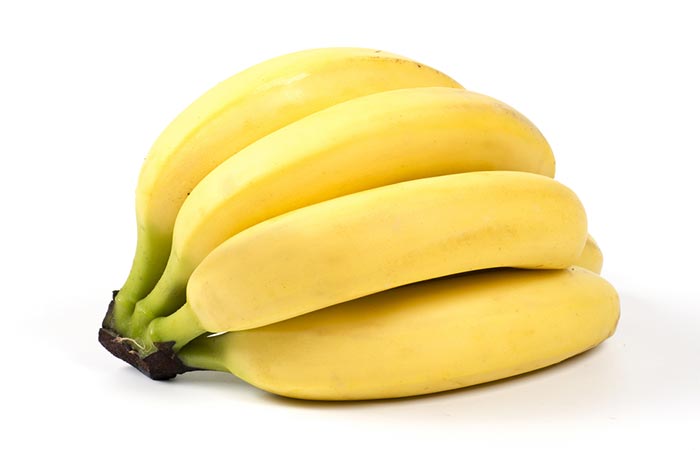
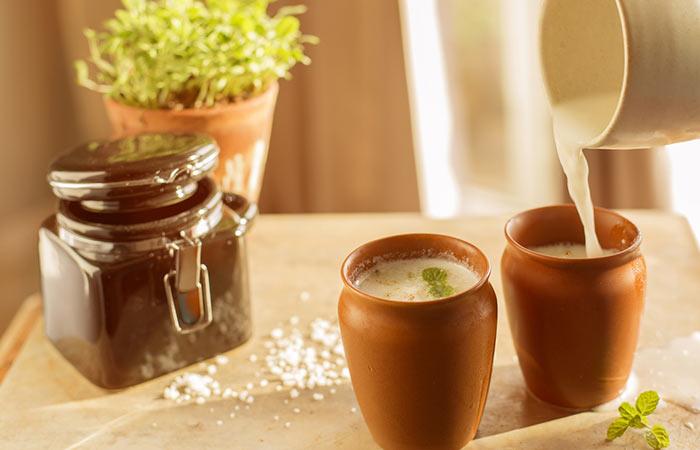
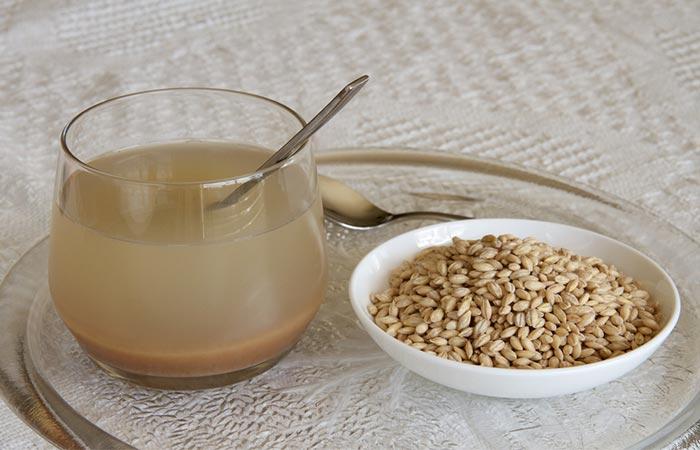

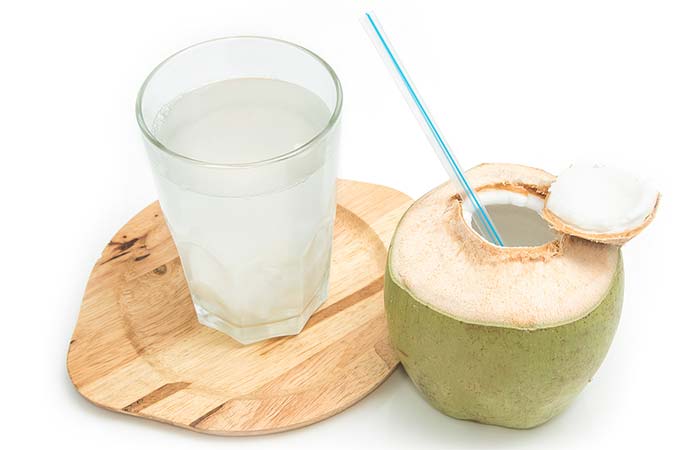
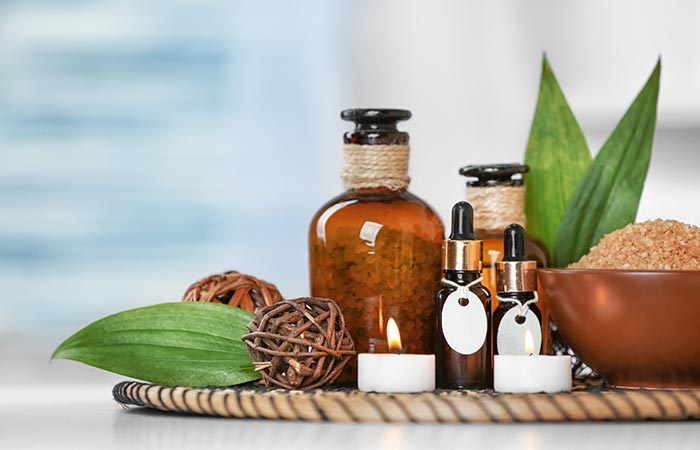
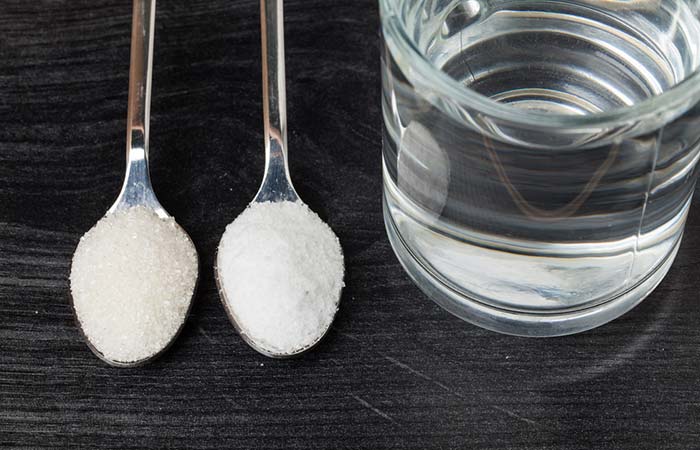
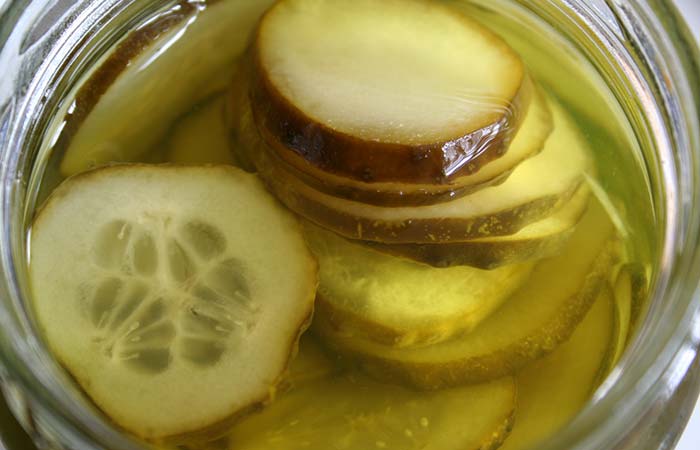

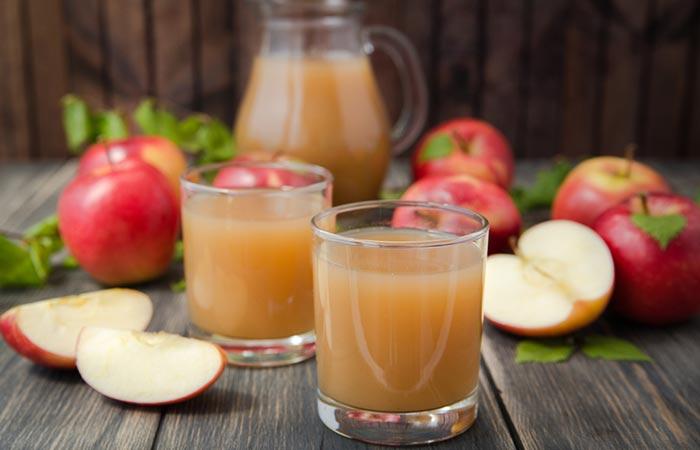
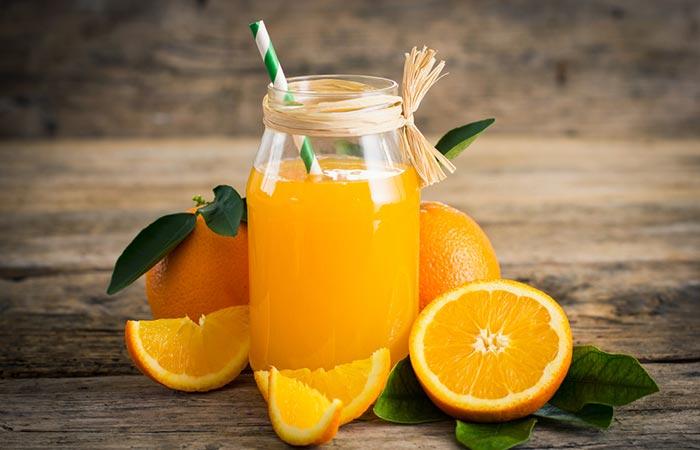
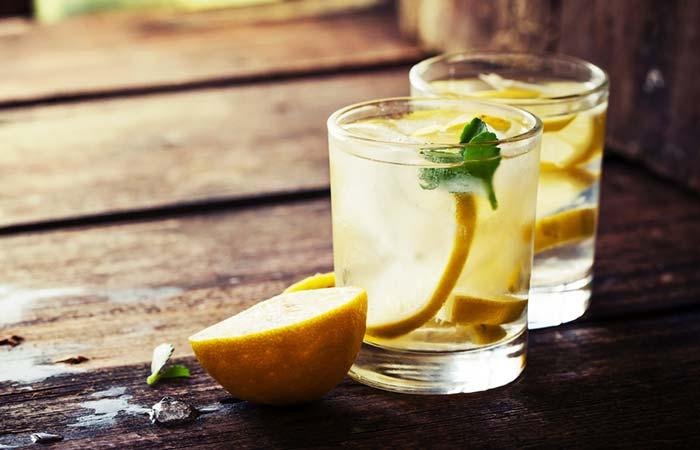
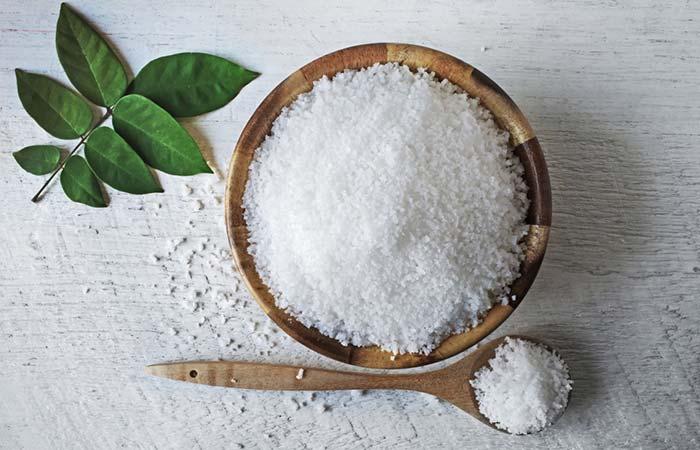
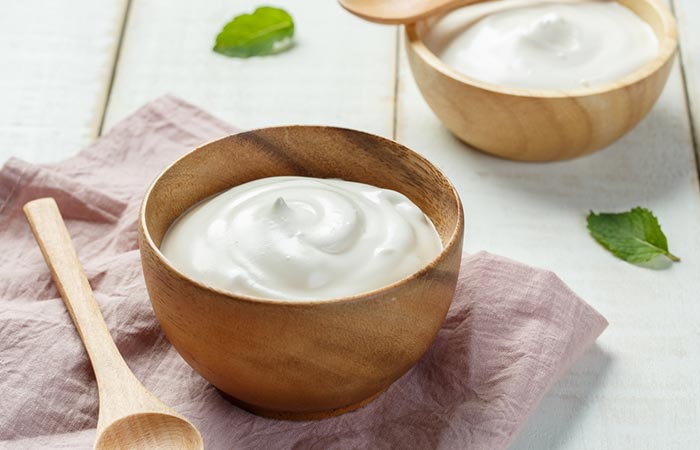
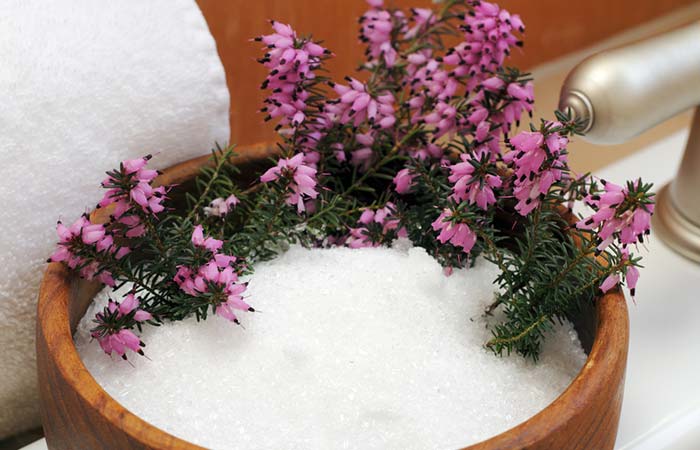
Comments
Post a Comment